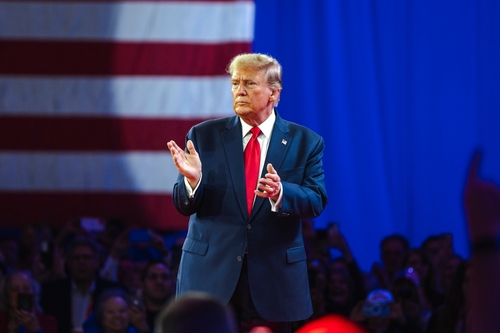In a significant legal decision, the U.S. Supreme Court dismissed Michael Cohen’s civil rights lawsuit against former President Donald Trump on Monday. Cohen, Trump's ex-personal lawyer, had accused the former president and other officials of retaliating against him in 2020 by placing him in solitary confinement after he refused to stop promoting his tell-all book, "Disloyal." Cohen claimed his imprisonment violated his First and Fourth Amendment rights.
Cohen, who was sentenced to three years for crimes related to his work for Trump, including tax evasion and campaign finance violations, was released to home confinement in 2020 due to COVID-19. However, he was briefly re-imprisoned after refusing to sign a form that barred him from speaking to the media or using social media while serving the remainder of his sentence at home.
MICHAEL COHEN HAS NOTHING ON DONALD TRUMP.
CASE OVER. pic.twitter.com/QR8HHqHfFs
— House Judiciary GOP 🇺🇸🇺🇸🇺🇸 (@JudiciaryGOP) May 15, 2024
He was placed in solitary confinement for 16 days before a federal judge intervened, ruling that the government had acted in retaliation for his free speech. Following his release, Cohen filed a civil lawsuit seeking damages.
The lawsuit, however, faced numerous legal hurdles. Lower courts had dismissed Cohen’s case, referencing the 2022 Supreme Court decision in Egbert v. Boule, which severely limited the ability to file civil rights claims against federal officials under the 1971 Bivens v. Six Unknown Named Agents precedent.
The Supreme Court rejected an appeal Monday from Michael Cohen, who wanted to hold his former boss and ex-president Donald Trump liable for a jailing he said was retaliation for writing a tell-all memoir.https://t.co/kg7DyQDD6K
— WEAR ABC 3 (@weartv) October 21, 2024
In Egbert, the Court held that Bivens should not be extended to new contexts, a principle that the Second Circuit Court of Appeals applied when rejecting Cohen’s claims. The appeals court, along with the Supreme Court, concluded that Cohen had no valid constitutional claim against Trump and other officials under existing law.
The dismissal marks the end of Cohen’s legal battle to hold Trump personally accountable for his return to prison. In the wake of the decision, Cohen expressed concern about the broader implications of Trump's potential return to power, stating that his former boss would continue using the justice system to target political adversaries.
Cohen's case underscores the growing difficulty plaintiffs face when seeking redress against federal officials for alleged civil rights violations, especially in light of the Court’s increasingly restrictive interpretations of Bivens. The decision reflects the judiciary’s reluctance to extend such lawsuits to new situations, even in cases where free speech violations are alleged. Trump, who remains a dominant figure in Republican politics and the 2024 presidential race, has not publicly commented on the ruling.
The Supreme Court's decision closes a chapter in the long and contentious legal feud between Cohen and Trump, further emphasizing the judicial system's growing deference to executive officials and limitations on civil rights claims.

